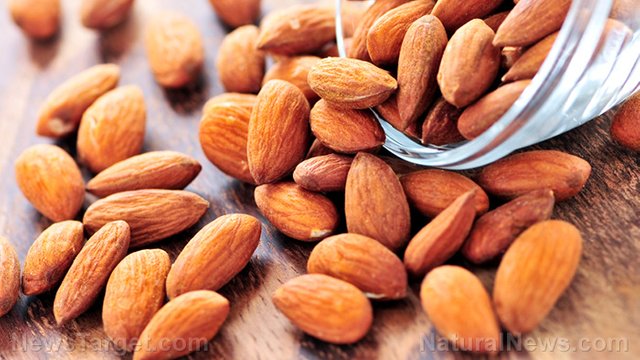Eat these 5 superfoods and experience their MULTIPLE health benefits
Superfoods are potent natural remedies for various ailments, including colds, wounds, inflammation and infections. Many superfoods, such as garlic, ginger, bananas and oranges, are easy enough to find due to factors like location and climate.
But some superfoods are far from popular despite the numerous health benefits they provide. (h/t to DailyMail.co.uk)

Chaga
Chaga mushrooms grow on birch trees in Asia, Canada and northern Europe. It is used in traditional Asian medicine to fight inflammation, regulate blood pressure and relieve joint pain due to high amounts of antioxidants.
The mushrooms are an excellent source of melanin, a dark brown to black pigment that naturally occurs in the hair, skin and iris of humans and animals. Melanin is technically not an antioxidant, but it’s able to prevent cellular damage caused by free radicals. Melanin also protects the skin from the sun’s harmful ultraviolet (UV) rays, which can cause skin cancer.
Chaga mushrooms also contain dietary fiber, which supports digestion, regulates bowel movement and aids weight loss.
Fenugreek
Despite having the word “greek” in the name, fenugreek is a widely consumed herb in India. It is a known natural remedy for ailments, such as coughs, constipation and menstrual cramps.
Fenugreek is also used to regulate cholesterol and blood sugar levels. It contains plant compounds known as phytoestrogens, which are linked to a reduced risk of cardiovascular disease and breast cancer. Fenugreek seeds are also used to stimulate milk production in nursing mothers, thanks to phytoestrogens.
The herb also contains trigonelline and galactomannan. Like phytoestrogens, these are plant compounds that possess antibacterial, anti-viral and anti-tumor properties.
Fenugreek seeds may be consumed raw, roasted or brewed to make tea. The leaves may also be added to various dishes.
Figs
Figs are sweet, bulbous fruits native to most Mediterranean countries. They are believed to possess antioxidant and anti-inflammatory properties because they contain high amounts of nutrients and minerals.
For instance, figs are rich in calcium, which plays an essential role in bone development. They also contain potassium, which regulates blood pressure and prevents kidney stones. Together, calcium and potassium lower the risk of osteoporosis and fractures.
Figs are also an excellent source of soluble fiber, which aids digestion and regulates bowel movement. Fiber is also linked to a reduced risk of constipation, diarrhea and other gastrointestinal disorders.
Almonds
Almonds are rich in antioxidants and minerals that enrich the body in various ways. For instance, almonds lower the risk of cardiovascular disease, stroke and heart attack due to high amounts of flavonoids. These plant compounds possess anti-inflammatory properties that support cardiovascular functions.
The nuts also contain minerals that boost heart health, such as calcium, potassium, magnesium and manganese.
Almonds also boost brain health due to high amounts of riboflavin and L-carnitine. These substances play an important role in lowering the risk of age-related brain conditions, such as dementia and Alzheimer’s disease.
You can eat almonds raw or roasted, or even add them to whole-grain cereals and oatmeal.
Apricots
Apricots are round, yellow fruits known to boost the immune system. They contain high amounts of vitamins A and C, which aid various body functions, including metabolism, respiration, digestion and immunity. Apricots also contain antioxidants that protect the body from cellular damage caused by free radicals.
Boost your immune system by including nutritious fruits and vegetables in your diet.
Sources:
DailyMail.co.uk
Healthline.com 1
Healthline.com 2
MedicalNewsToday.com 1
MedicalNewsToday.com 2